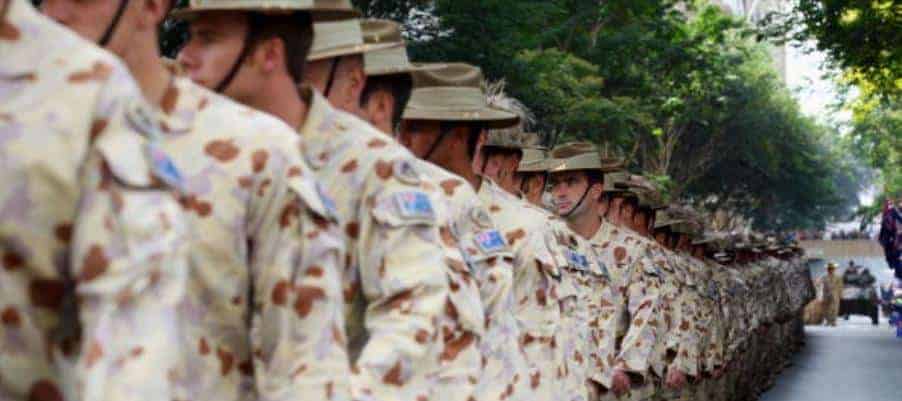Australia will be sending more troops to Iraq to assist in the fight against Islamic State, Prime Minister Tony Abbott has announced.
Speaking outside Parliament House on Tuesday, Mr Abbott said the new deployment would be working in a “building partner training capacity”.
He said the precise numbers were yet to be finalised, but anticipated about 300 Australian regular personnel would be in the deployment. They will be working in a close joint military operation with a further 100 New Zealand troops, although it will not formally be recognised as an ANZAC operation.
The Australian and NZ troops will be joining those from coalition partners Spain, the Netherlands and the United States already in Iraq.
Mr Abbott said the deployment comes in response to a formal request from the Iraqi government and the US to contribute the forces to help train the Iraqi army.
Mr Abbott said the goal of the Australian military training contingent was to improve Iraq’s own ability to take and hold ground from Islamic State (aka ISIS, ISIL and Daesh), “to keep Iraq safe” and to “wrest back control of the country from the death cult”.
“It is absolutely and utterly in Australia’s national interest to do this,” he said.
The prime minister denied that the new deployment, which has bi-partisan support, was mission creep. Rather, he described it as shifting to the next phase of a long mission, noting the planned draw-down of the current deployment of 170 Australian Special Forces by September.
Andrew Wilkie spoke forcefully against the deployment, though. The Independent MP told reporters that after billions being spent and thousands of military trainers having already served there over 12 years, Iraq’s army was no better off.
“There is no simple solution, no bloodless solution,” Wilkie admitted, but remained resolute in his conviction that that Australia’s and the West’s involvement in Iraq was the cause of instability in the Middle East, not the answer to it.
“We are now reaping what we sew(ed) in 2003,” he said, referring to the US led invasion of Iraq.
IMAGE: (By Bradley Kanaris/Getty Images)











